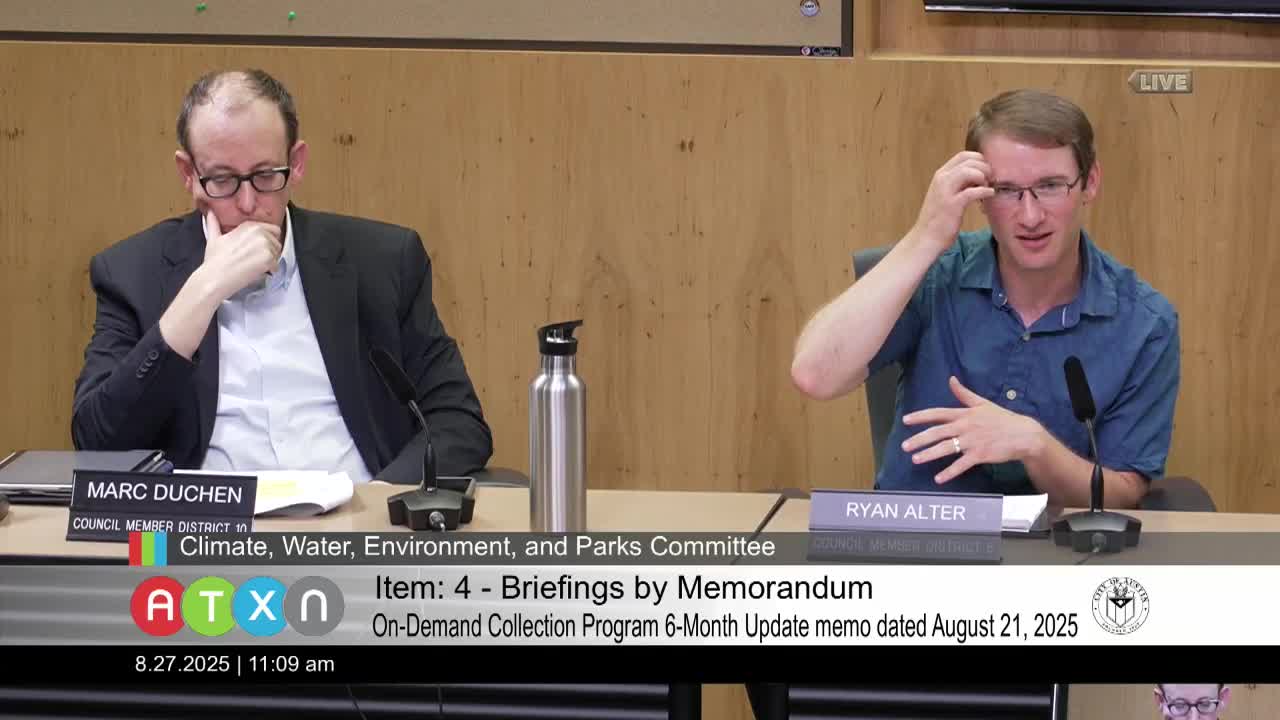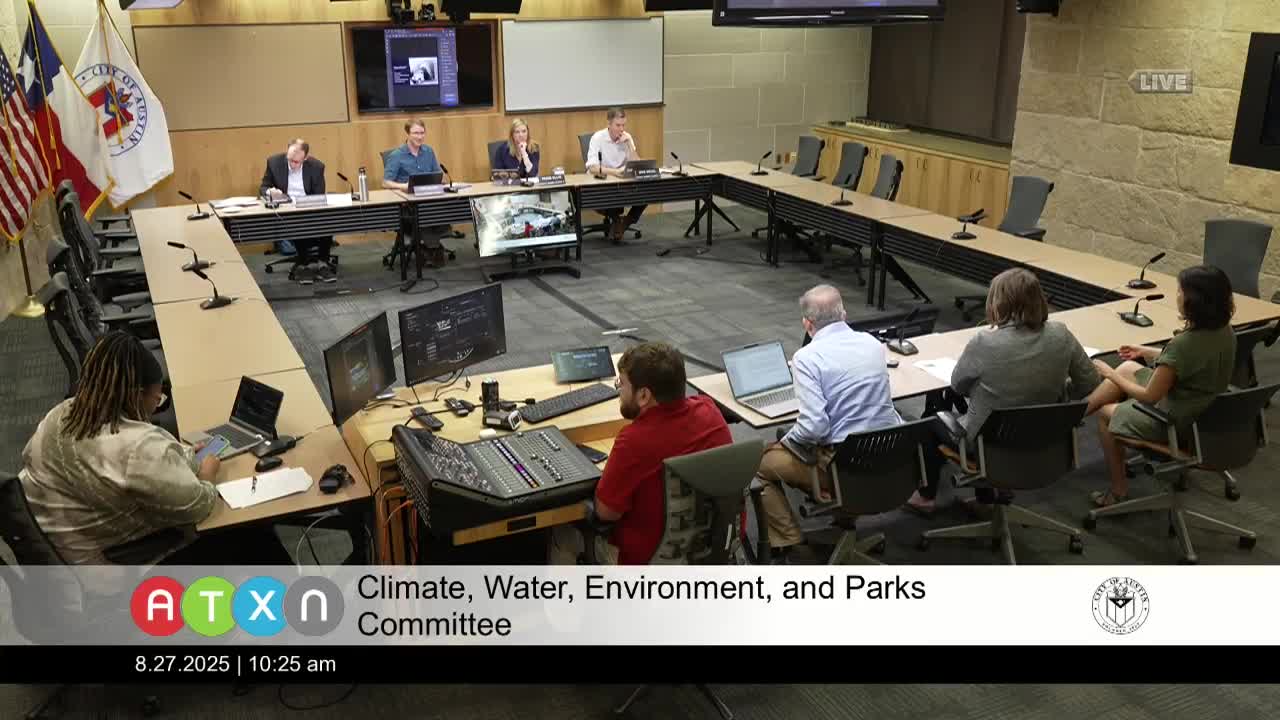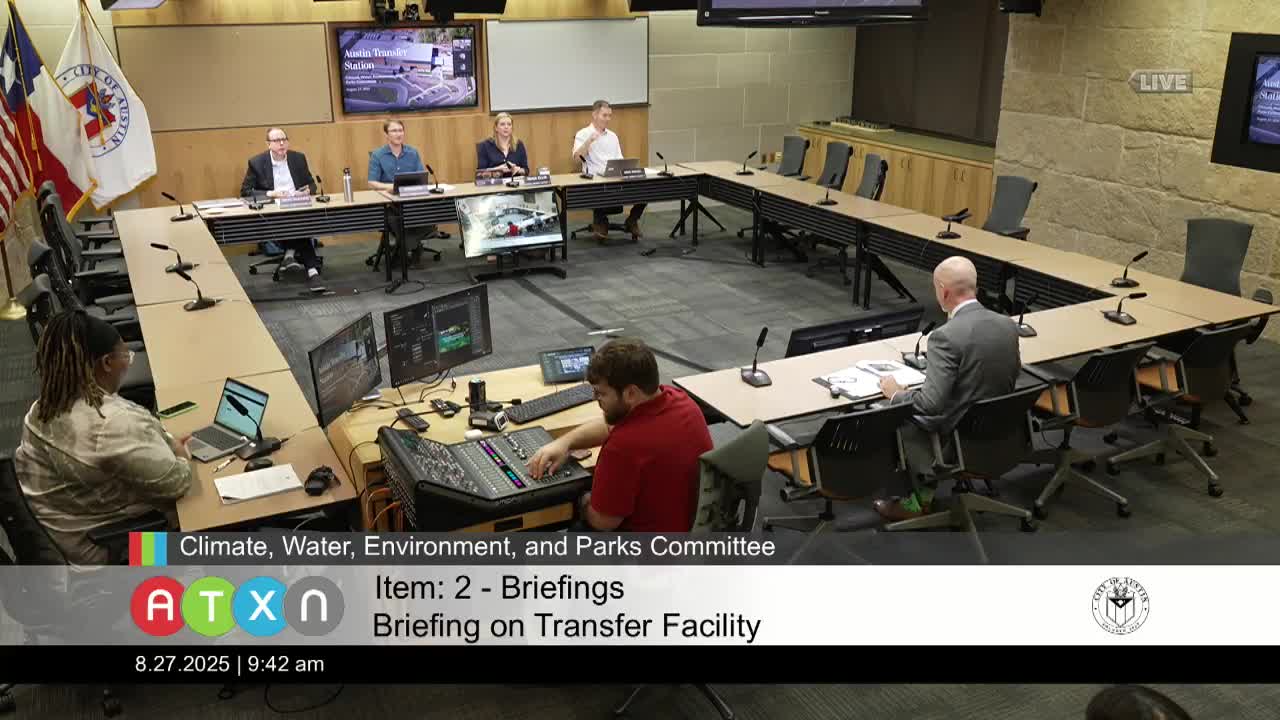Article not found
This article is no longer available. But don't worry—we've gathered other articles that discuss the same topic.

ARR: on‑demand bulk pickup shows early operational savings; staff to track participation and diversion

'Rain to River' overhaul: Watershed Protection seeks to update 2001 master plan with equity, climate and 10‑year targets

